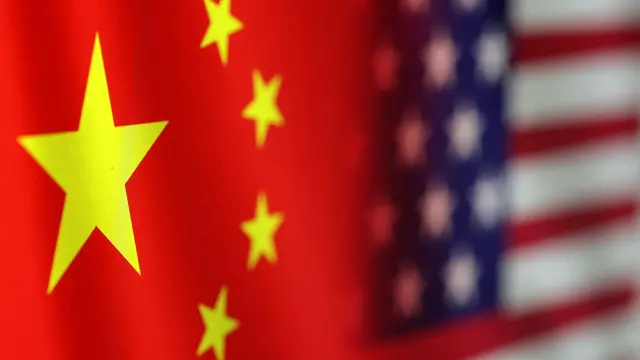*Author: Prof. Engr. Zamir Ahmed Awan, Founding Chair GSRRA, Sinologist (ex-Diplomat), Editor, Analyst, and Non-Resident Fellow of CCG (Center for China and Globalization). (E-mail: [email protected]). *
In the midst of a rapidly changing global landscape, Sino-US relations have faced their share of challenges and uncertainties. However, recent developments in diplomatic engagements and high-level visits have provided a ray of hope for a positive and constructive future between the two nations. The historic visit of the esteemed diplomat and politician, Henry Kissinger, to China, along with the subsequent visits of US senior officials John Kerry and Anthony Blinken, signify a paradigm shift in American tactics and approach towards fostering a cooperative and mutually beneficial relationship with China. Certainly, the potential for a promising future in Sino-US relations, emphasizing the opportunities for cooperation and dialogue that can pave the way for peace and stability on the international stage.
The Legacy of Henry Kissinger
Born on 27 May 1923 (age 100 years), at Fürth, in Germany, most respected American diplomat, political theorist, geopolitical consultant, and politician who served as United States secretary of state and national security advisor under the presidential administrations of Richard Nixon and Gerald Ford. For his actions in negotiating a ceasefire in Vietnam, Kissinger received the 1973 Nobel Peace Prize under controversial circumstances. He was a Jewish refugee who fled Nazi Germany with his family in 1938. Upon arriving in the United States, he excelled academically and graduated from Harvard College in 1950, where he studied under William Yandell Elliott. And earned his M.A. and Ph.D. degrees at Harvard University in 1951 and 1954, respectively. His role as the architect of Sino-US relations in the early 1970s cannot be underestimated. His diplomatic efforts laid the groundwork for the normalization of relations between the two nations and set the stage for future cooperation. Now, decades later, his visit to China as a senior diplomat and politician carries profound significance. His engagement with the highest levels of Chinese leadership, including President Xi, indicates a renewed commitment to maintaining a productive dialogue despite existing geopolitical challenges.
Building Bridges through Diplomacy
In today's interconnected world, diplomacy remains the most powerful tool for fostering understanding and resolving differences. The recent visits of US senior officials, John Kerry and Anthony Blinken, demonstrate the United States' willingness to engage in constructive dialogue with China, emphasizing cooperation on critical issues such as climate change, global health, and economic stability. By acknowledging the shared responsibilities of both nations in addressing global challenges, a sense of optimism and mutual respect has emerged, paving the way for a more positive approach in future interactions.
Shared Interests and Collaborative Opportunities
It is crucial to recognize that Sino-US relations extend beyond bilateral concerns. As two of the world's most influential nations, their cooperation and collaboration hold significant implications for the global community. Finding common ground on issues like nuclear non-proliferation, regional security, and technological advancements can create a win-win situation, benefitting both countries and contributing to global peace and prosperity.
Strategic Competition with Stability
While the current geopolitical landscape may appear complex, it is vital to approach the relationship between the United States and China with strategic competition tempered by stability. Both nations have legitimate interests and concerns, and it is essential to address these in a constructive and respectful manner. Engaging in dialogue that emphasizes mutual understanding and peaceful coexistence can reduce tensions and open avenues for productive cooperation.
Towards a Positive Future
The recent developments in Sino-US relations offer hope for a positive and prosperous future. By following in the footsteps of Henry Kissinger, who initiated dialogue during a similarly challenging period, both nations can build upon their shared history of cooperation. Continued high-level engagement and a commitment to finding solutions to shared challenges will shape the foundation of an enduring relationship.
Conclusion
In conclusion, the recent visits of Henry Kissinger, to China mark a significant turning point in Sino-US relations. By embracing diplomacy, recognizing shared interests, and seeking opportunities for cooperation, both nations can forge a path toward a promising future. As we navigate the complexities of the 21st century, it is through optimism, politeness, and a genuine commitment to understanding that we can create a world where Sino-US relations serve as a force for good on the global stage. Let us embark on this journey of cooperation and dialogue, fostering a stronger relationship between our nations and bringing about a brighter and more peaceful future for all.
Dr. Kissinger is well respected in the US, his books are well-read, and his lectures, and statements carry weight. He is even more respected in China, his recent private visit and meeting with President Xi is valid proof of his recognition in China. It is expected that his advice will be considered by the US administration and may transform the geopolitical scenario.
(ASIA PACIFIC DAILY)
 简体中文
简体中文

